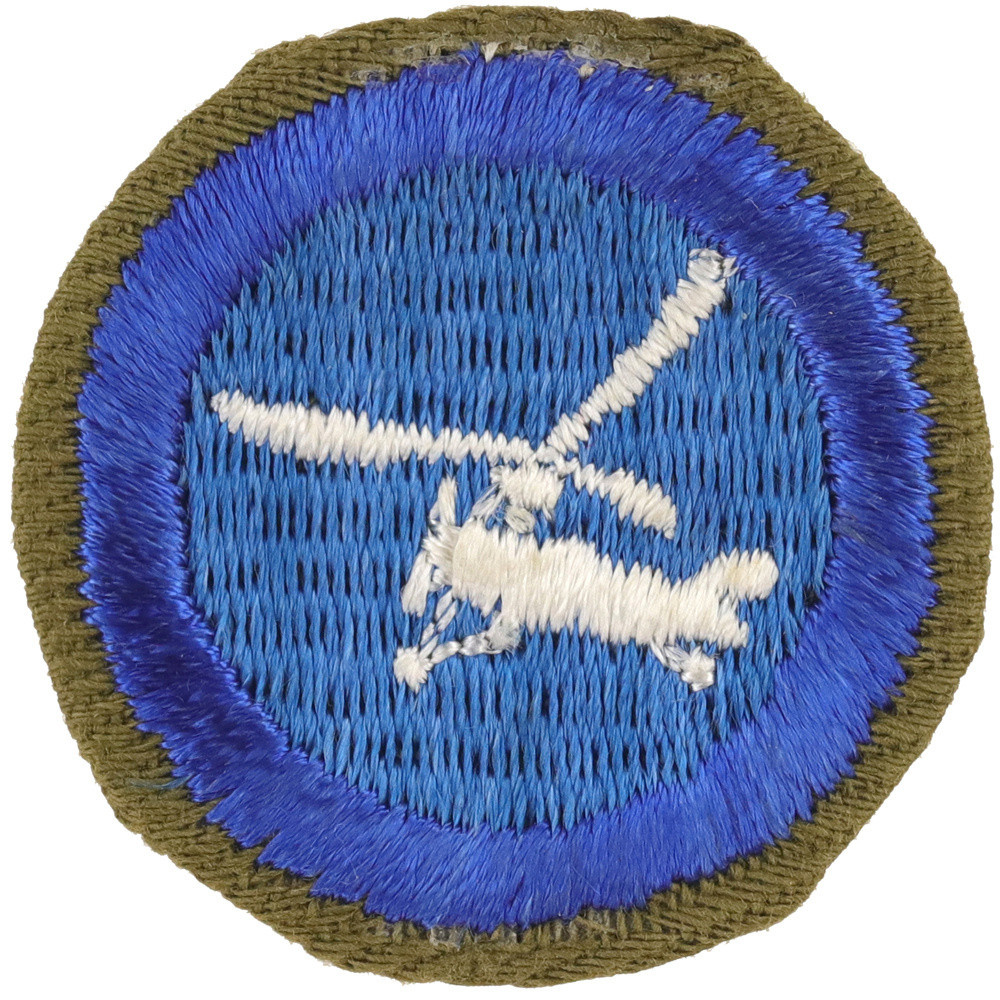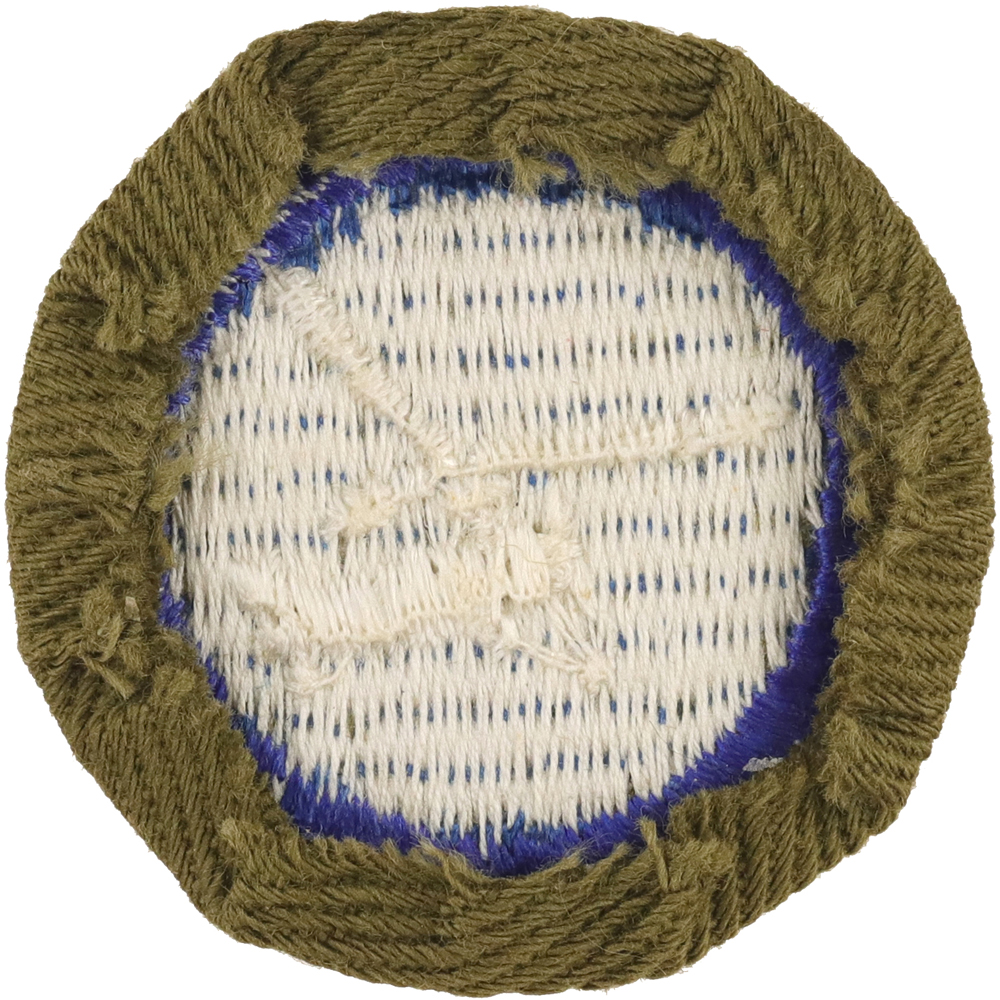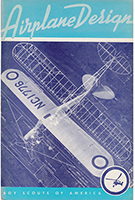
Fig. 1: AirDes-E-Front

Fig. 2: AirDes-E-Reverse
- White lockstitch/li>

Fig. 3: AirDes-E-mve1-front
- Cloth: Khaki right twill
- Embroidery: Cotton
- Special: Blue border

Fig. 4: AirDes-E-mve1-reverse
- Black lockstitch/li>
Item Name: Airplane Design 1942 - 1947
Item ID: AirDes-E
Collector Rating: 5
Requirements Aprip 1942 until 1947
- Point out on rough diagrams or on photographs, the outstanding differences in design of full scale planes used for five rather widely different purposes—such as first training, commercial transport, seaplanes on northern lakes, clippers, pursuit or others
- Measure the silhouettes of five modern full scale planes and record range of variation in the ration of wing span to chord (aspect ratio); also in wing area as compared to stabilizer-elevator area
- Show design differences in camber of wings for high lift and for high speed—use rough sketches to explain reasons
- (a) Find approximate location of center of gravity in a flying model, and explain why a low center of gravity contributes to parasol stability; (b) if a model plane is balanced and wings of same chord, but of added span and weight were substituted at same structural points, what would happen to the center of gravity, and what would the plane then tend to do in flight?
- Show by rough sketches why dihedrals, sweepbacks, and relatively high wings tend to give a model stability in flight.
- Build, test and report flight performances of two flying models of same general size but of quite different design. For the test use same power plant and propeller. If desired, the Scout may build but one of the two test planes, matching it against one he or his friends now have, AND then offer as the second of the two to be built, an original unconventional or experimental flying model.
- Prepare approximate or rough scale drawings of the two models used in the tests of Requirement No. 6 and point out the principal design differences
- Fly one or more of the Scout's own model planes in competition involving not fewer than four planes.
- Measure four flying model planes of Requirement No. 8 and present Counselor with their comparative flight records and a list of their wing shapes and of their following design ratios: (a) Wing span to mean chord; (b) Wing span to propellor diameter; (c) Wing span to fuselage length; (d) Dihedral in
inches per foot of span; (e) Wing load in ounces per square inch; (f) Maximum wing camber to chord

